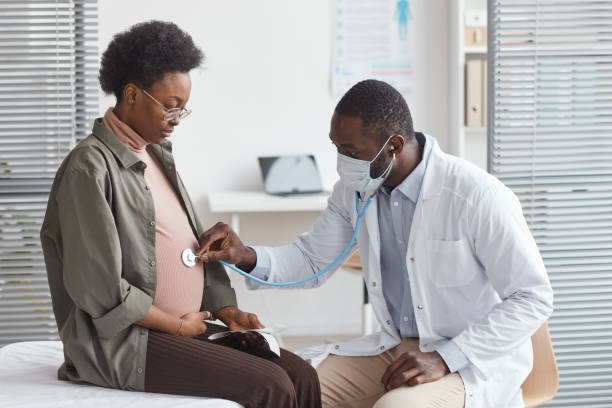The United Nations Population Fund (UNFPA) has reiterated its commitment to support and provide quality global health systems for increased access to sexual and reproductive health rights for women. The Executive Director of UNFPA, Dr. Natalia Kanem, made this known in a statement which was re
by its media associate, Hajiya Kori Habib, on Friday to commemorate the ‘World Health Day’ with the theme: “Health for All.”
In her statement, Kanem emphasized the role of UNFPA in engendering inclusive and quality healthcare services that can reach everyone around the world. She explained that UNFPA supports health systems to provide quality sexual and reproductive health services, which can save and improve lives and generate economic gains.
According to Kanem, investing in sexual and reproductive health is an essential investment in sustainable development. She reiterated the imperatives of preventing maternal mortality, stating that it is necessary to deliver a world where every woman, girl, and young person can live up to their full potential.
She said, “By UNFPA’s calculation, investing a single dollar in ending preventable maternal deaths and the unmet need for family planning by 2030 can yield economic benefits of up to 8.40 dollars by 2050.”
Kanem called on everyone to use the occasion of World Health Day to uphold the right of all people to reach the highest possible standard of health. She decried the alarming rate of maternal mortality, blaming it on the failure of the health system and misplacement of priorities.
According to her, “Every two minutes, a woman dies giving birth. As the clock counts down another year, 287,000 more women will meet the same tragic fate. Most of these deaths are preventable. They are not inevitable. They happen because healthcare systems routinely fail women and girls.”
Kanem expressed concern about the decline in global progress made in reducing maternal deaths caused by COVID-19 and wrong decisions that deprioritize and cut funds for essential lifesaving health services.
“One reason may be that, particularly amid the COVID-19 pandemic, decisions were made to deprioritize and cut funds for essential, life-saving sexual and reproductive health services. Gender discrimination often drives such decisions, treating the health and well-being of women and girls as less important than other goals,” Kanem noted.
She explained that as part of the 2030 Agenda for Sustainable Development, countries around the world had committed to achieving universal health coverage and universal access to sexual and reproductive health. However, in most countries, universal health coverage benefit packages exclude many essential sexual and reproductive health interventions, including measures related to reproductive cancers and gender-based violence prevention and response.
In Nigeria, UNFPA has been working with the government to ensure that sexual and reproductive health services are available and accessible to everyone, especially in rural areas.
Recently, the Executive Director of UNFPA and the Minister of Health, Dr. Osagie Ehanire, launched the “Contraceptive Commodity Security” (CCS) project to improve access to contraceptive commodities. The project is aimed at ensuring that essential contraceptive commodities are available, accessible, and affordable to everyone who needs them.
Speaking at the launch, Kanem said, “We know that improving access to family planning is one of the most effective ways to reduce maternal deaths and improve the health and well-being of women and girls. Through the CCS project, we hope to make a significant contribution to reducing maternal deaths and improving the health and well-being of women and girls.”
UNFPA has also been supporting Nigeria’s efforts to end gender-based violence (GBV) through various programs and interventions.



